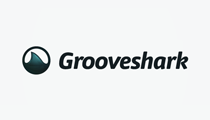This website uses cookies so that we can provide you with the best user experience possible. Cookie information is stored in your browser and performs functions such as recognising you when you return to our website and helping our team to understand which sections of the website you find most interesting and useful.
Business News Digital Grooveshark Timeline Legal Top Stories
UK industry may seek a web-block injunction against Grooveshark
By Chris Cooke | Published on Monday 11 November 2013
Speculation is rising that the UK’s record label trade body the BPI might seek a court order to force internet service providers to block access to controversial streaming service Grooveshark.
As previously reported, the BPI has now secured injunctions forcing ISPs to block a number of file-sharing websites, utilising a precedent set in the English courts when the movie industry successfully secured a web-block against Newzbin2 in 2011. It has become the norm that, before the BPI considers taking legal action to secure a web-block, it contacts all labels in the UK via collecting society PPL to check if any have a licensing arrangement with targeted sites.
Earlier this year the list of possible target sites included in one of those PPL-delivered messages included Grooveshark, though the subsequent injunction that was then secured last month did not include the streaming service. But, according to Torrentfreak, PPL has sent another standalone message asking UK labels whether they are currently licensing content to Grooveshark, with today provided as a deadline to let the BPI know if deals are in place.
Although the BPI insists to Torrentfreak that this survey does not necessarily mean legal action will follow, if the trade body was to try and secure a web-block against Grooveshark it would make for an interesting case. Because while the US-based streaming site has plenty of enemies in the music industry, unlike the file-sharing services usually targeted with web-block injunctions, Grooveshark has tried to engage the record labels and music publishers, and has had and currently has deals in place with some of them.
Plus, of course, Grooveshark’s owners claim that their service is legal, in the US at least, even though users can upload content to its servers, meaning that it routinely hosts content that it is not licensed to distribute. But Grooveshark operates a takedown system as described in America’s Digital Millennium Copyright Act, removing unlicensed content when made aware of it, which technically means it is not liable for copyright infringement under US law, even though some labels, publishers and artists have accused the digital firm of operating a deliberately shoddy track removal process.
Of course the DMCA doesn’t apply outside the US, and although there is a bit of European law that offers similar protection to web companies, it hasn’t been tested in the music space. Which means Grooveshark could be deemed liable for infringement in the English courts; though the case wouldn’t be so simple as those pursued against more conventional file-sharing set ups, so the BPI would likely want to tackle it separately if it decided to go the web-block injunction route.
Though the fact that some labels are working with Grooveshark (even if anecdotal reports suggest most of the indies who were now are not), coupled with the extra legal challenges of blocking access to this kind of site, might put the trade body off pursuing action. Especially when the web-blocks have only limited impact in stopping file-sharers from accessing unlicensed sources of content, as it’s pretty simple to circumvent the blockades.






